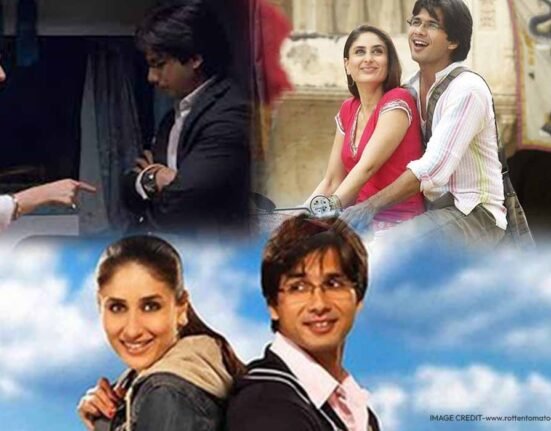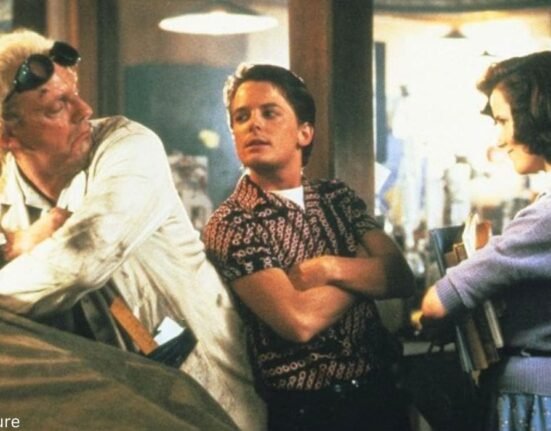Think about it: You’re sitting at your go-to coffee shop, sipping on an iced coffee, and then that couple sitting over there begins to whisper. You weren’t trying to eavesdrop, but a name triggers something within you, and now your ear is leaning in trying to listen to the whole conversation. Is it a scandal? Break-up? Betrayal? Something else?. Whatever It is, your ears perk up, and now you’re hooked.
Why is that? Why are we so irresistibly drawn to drama? Reality TV, Twitter beef, that friend who always has tea on them—drama can be sexy. It is an attraction we cannot escape. But here’s the thing – addiction to drama isn’t just about entertainment. It is hardwired into our brains. So let’s dive into the science behind why we simply can’t resist turning our heads at drama, conflict, and gossip—and how it affects our social lives.
The Science Behind Gossip: Why We Can’t Get Enough of Spilling (and Sipping) the Tea

Gossip gets a bad rap, but believe it or not, it’s a crucial role in human evolution. Evolutionary psychologists contend gossip keeps our forebears alive. In the days of hunting and gathering, knowing who to trust and who was a cheat mattered. Gossiping helped people bond with one another, protect themselves against cheats, and form coalitions. Think about it. If two people in your group are fighting, you naturally want to know why. Who’s at fault? Who’s the victim? This is helpful because it navigates you through social situations and prevents you from making the same mistakes over and over again.
Research by psychologist Robin Dunbar indicates that approximately 65% of our talk is gossip—but not, perhaps, mean-spirited gossip. Gossip is simply the sharing of social information, whether it’s about celebrities, co-workers, or your neighbor who somehow manages to have five different cars without an apparent job.
Why We Love To Gossip
- It forms social bonds – Have you ever noticed how you feel closer to someone after sharing some gossip? That’s because gossip forms bonds.
- It makes us feel important – Having special knowledge makes us powerful.
- It shows us – Gossip shows us what we can and cannot do (and what will land us on the chopping block).
The next time you drop the tea, remember – you’re not nosy. You’re engaging in an ancient survival strategy.
Conflict is Type Of Entertainment
Ever questioned why reality TV is so binge-watchable? It’s Bigg Boss, Keeping Up with the Kardashians, or your go-to K-drama – the shows keep us hooked on the telly. Why, then?

It appears that our brains are preprogrammed for conflict. Neuroscientists discovered that viewing drama stimulates the same areas of the brain that respond to real emotions. When we see a fight or a scandal, we get a dopamine high, the brain’s pleasure neurotransmitter. It is the same neurotransmitter responsible for addiction to gambling, social media, and even being in love.
Why We Love to Watch Drama:
- Emotional stimulation – Drama gives us an emotional rollercoaster without real-life repercussions.
- Escapism – Seeing someone else’s mess makes our own troubles seem smaller.
- Social learning – We watch how people react in disagreements and learn from their mistakes (or silently critique them).
Watching drama is just like junk food – unhealthy in excess, but oh-so satisfying.

Why Some Individuals Like To Cause Drama
We all have that one individual who lives for drama. They cause trouble, fight over nothing, and always find themselves in the middle of every controversy. But why?
Psychologists suggest that some individuals cause drama for:
- Attention – Negative or positive, it doesn’t matter – attention is attention.
- Control – Causing drama can provide an individual with a feeling of control over a situation.
- Boredom – Some individuals just become weary of mundane existence with no added drama.
Fascinatingly, studies have found that people who always dramatize situations have high levels of neuroticism, or experience things intensely. Thus, while drama may indeed be engaging to the outside world, for its fans it is often an emotional rollercoaster that they cannot escape.
The Social Media Effect: Drama in the Digital Age
Drama and gossip have become mass entertainment, courtesy of social media. From Twitter feuds, TikTok drama, and influencer scandals, drama travels faster than ever. And let’s be honest—how many times have you clicked on a thread just to “catch up” on some online craziness?
Pages like Twitter, Reddit, and Instagram thrive because drama gets viewers. The longer you keep up with online, the more ads you’re exposed to.
The Problem?
While drama and gossip might be fun to watch, too much of it can be toxic for us. Research indicates that too much drama online can actually boost stress, anxiety, and even decrease self-esteem. And let’s face it, spending the day watching other people fight isn’t really taking care of one’s self.
Can Some Drama Actually be Good For You?
Strangely, all drama is not bad. Actually, some drama is beneficial to you. Enjoying vibrant debates with your pals, sentimental tale-telling, and fervent arguments can even make friendships more robust. It is the principle of moderation that holds the answer.
How to Enjoy Drama Without Letting It Take Control of You:
- Listen in – Ask yourself: “Is this enriching my life, or just sucking the energy out of me?”
- Choose your fights – Not all fights are yours to fight. Some can be left unchallenged.
- Laugh it off – The best way to handle drama in some cases is to just laugh it off.
Conclusion
Drama is part of being human. Whether we are gossiping about something, seeing drama happen before our eyes, or even engaging ourselves in some trouble, that’s all just how we communicate and learn about the world. But whereas drama can be enjoyable, too much drama can be draining. So the next time you catch yourself caught up in a whirlwind of gossip, ask yourself—is the drama enjoyable, or is it running amok on me?
And if all else fails… just sit back and get some popcorn to watch the show.
FAQs
1. Is all gossip bad?
Not necessarily. Gossip can be harmful if it’s mean-spirited or spreads false information, but it can also be harmless and even helpful. Sharing social information helps people understand their environment and learn from others’ experiences.
2. Why do people enjoy watching drama unfold?
Drama triggers emotional stimulation and releases dopamine, the brain’s pleasure chemical. It provides entertainment, escapism, and social learning, allowing people to experience emotional highs and lows without real-life consequences.
3. How can I avoid getting caught up in unnecessary drama?
Be mindful of the drama you engage with. Ask yourself if it’s adding value to your life or just draining your energy. Choose your battles wisely, set boundaries, and don’t let external conflicts consume your peace of mind.
4.Why does drama feel so addictive?
It triggers the brain’s reward system, releasing dopamine, which makes it feel exciting and hard to ignore. It’s similar to why people get addicted to social media, gossip, or even gambling—our brains love stimulation.
5. Why do people love gossip so much?
Gossip is a social tool that helps us bond, learn about others, and navigate social dynamics. It has evolutionary roots, as early humans used gossip to assess trustworthiness and form alliances. Plus, sharing secrets makes us feel connected and important.
References +
- Grooming, gossip, and the evolution of language — Harvard University Press. (n.d.). Harvard University Press. https://www.hup.harvard.edu/books/9780674363366
- McAndrew, F. T. (2024, February 20). The Science of Gossip: Why we can’t Stop ourselves. Scientific American. https://www.scientificamerican.com/article/the-science-of-gossip/
- Haidt, J. (2012). The Righteous Mind: Why Good People Are Divided by Politics and Religion. Vintage.
- Baumeister, R. F., Zhang, L., & Vohs, K. D. (2004). Gossip as cultural learning. Review of General Psychology, 8(2), 111–121. https://doi.org/10.1037/1089-2680.8.2.111
- Sapolsky, R. M. (2017). Behave: The Biology of Humans at Our Best and Worst. Penguin Press.













Leave feedback about this